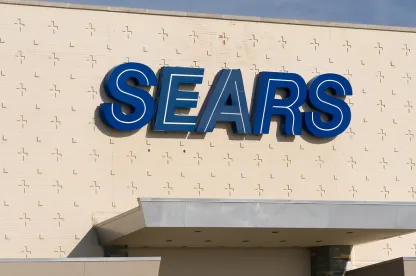The Supreme Court’s April 19, 2023, decision in MOAC Mall Holdings, LLC v. Transform Holdco, LLC, 598 U.S.___, ___S. Ct.___, 2023 WL 2992693 (April 19, 2023) resolved an existing circuit split by holding that section 363(m) of Title 11 of the United States Code (the “Bankruptcy Code”) is not “jurisdictional”; rather, 363(m) merely limits the remedies available to a successful appellant. Beyond this resolution, the opinion is likely to carry implications regarding Debtor in Possession (“DIP”) Financings under section 364(e) of the Bankruptcy Code, which lenders should be aware of and be prepared to address in post-MOAC cases. This alert overviews the MOAC opinion and highlights its implications concerning DIP Financing orders entered under section 364.
Section 363(m)
Section 363(m) provides that the reversal or modification “of an authorization under subsection (b) or (c) of this section of a sale or lease of property does not affect the validity of a sale or lease under such authorization to an entity that purchased or leased such property in good faith, whether or not such entity knew of the pendency of the appeal unless such authorization and such sale or lease were stayed pending appeal.” 11 U.S.C. § 363(m) (emphasis added).
Previously, the Second and Fifth Circuits held that section 363(m) is “jurisdictional,” meaning that an Appellate Court lacks the authority to adjudicate the merits of an appeal challenging a sale order unless either the lessee or purchaser did not act in good faith or the order had been stayed pending the appeal. Conversely, the Third, Seventh, Ninth, Tenth, and Eleventh Circuits held that section 363(m) is not jurisdictional. The MOAC opinion resolves the split in favor of the majority.
The MOAC Opinion
Petitioner MOAC Mall Holdings, LLC (“MOAC”) was the landlord of a Sears store in the Mall of America. The landlord had unsuccessfully objected before the Bankruptcy Court to the lease assignment based on the lack of adequate assurance of future performance. The landlord appealed the decision permitting the lease assignment, but the bankruptcy Court denied its request for a stay pending appeal, and the lease was assigned during the pendency of the appeal. The District Court first reversed the Bankruptcy Court. Still, the purchaser requested a rehearing, arguing for the first time that the appeal should be dismissed under section 363(m) because the order had not been stayed pending appeal. The District Court granted the motion for rehearing, concluded that it lacked jurisdiction to hear the appeal under prior precedent, vacated its earlier opinion, and dismissed the appeal. The Second Circuit affirmed the District Court’s dismissal of the appeal. In its unanimous opinion, the Supreme Court reversed the Second Circuit.
The Court concluded that section 363(m) is not a jurisdictional provision; instead, the requisite stay pending appeal referenced in the statute serves as a precondition for certain relief (invalidating the sale or lease itself). The distinction is important for several reasons: unmet jurisdictional preconditions require immediate dismissal because a particular Court lacks the power to hear the case; jurisdictional rules are impervious to waiver and forfeiture; and Courts must raise and enforce them sua sponte.
Furthering its effort to rectify its previously “loose” and overinclusive use of the word “jurisdictional,” the Court reiterated the clear-statement rule, which requires Congress to “clearly state” that a provision is jurisdictional for the Court to treat it as such. But the Court was careful to specify that the clear statement rule does not require “magic words,” and a clear statement can be ascertained using traditional tools of statutory construction.
Applying the clear statement rule to section 363(m), the Court observed that nothing in the statutory language purports to govern a Court’s adjudicatory capacity. No reference is made to the Court’s authority or the jurisdiction of the District Courts. Instead, the statute insulates certain specifically covered authorizations—namely, the validity of a sale or lease under such authorization to a good-faith purchaser or lessee under specific circumstances—from being overturned on appeal absent a stay pending appeal.
The implications of this reading are important because if section 363(m) is not jurisdictional, then provisions in a sale order that pertain to matters outside of the validity of a sale or lease itself are vulnerable to reversal on appeal, regardless of whether the appellant has obtained a stay pending appeal. Since it is common practice to include in 363 orders provisions that extend to matters beyond the sale or lease itself, practitioners would be well-advised to revisit their proposed 363 orders post-MOAC to bolster their argument that important provisions fall within this narrow appellate safe harbor.
Inevitably Courts will disagree over whether certain provisions contained in specific sale orders fall within the specific language of section 363(m), resulting in fertile grounds for future litigation. By the same token, because section 363(m) is not jurisdictional, the stay pending appeal requirement is also subject to waiver and forfeiture arguments. For example, the landlord in MOAC may successfully argue on remand that the purchaser waived its section 363(m) argument since it was raised for the first time in its motion for rehearing after the District Court had already reversed the Bankruptcy Court on the merits. But looking beyond section 363, there are implications of the MOAC decision that DIP Lenders should be aware of.
Implications for DIP Financing Orders
Section 364 governs a debtor’s ability to obtain DIP Financing and provides certain protections and rights to those that provide such funding. Increasingly, orders entered under this section include provisions that extend well beyond the extension of credit and grant of priority liens, such as release provisions for parties extending such loans, sale and plan milestones, and other heavily negotiated rights for DIP Lenders.1
Section 364(e) provides that “[t]he reversal or modification on appeal of an authorization under this section to obtain credit or incur debt, or of a grant under this section of a priority or a lien, does not affect the validity of any debt so incurred, or any priority or lien so granted, to an entity that extended such credit in good faith, whether or not such entity knew of the pendency of the appeal, unless such authorization and the incurring of such debt, or the granting of such priority or lien, were stayed pending appeal.” 11 U.S.C. § 364(e) (emphasis added).
Because the language of section 364(e) parallels the language in section 363(m), DIP Lenders should assume that the MOAC analysis applies to DIP Financing orders, potentially leaving these additional provisions (beyond the extension of credit and grant of priority liens) vulnerable on appeal, even if the appellant fails to obtain a stay pending appeal. Following the analysis in MOAC, Courts are likely to conclude that only the provisions of the DIP order in question relating to the incurrence of the DIP Financing and the grant of priority liens are insulated from reversal on appeal absent a stay pending appeal (unless, of course, the DIP loan was not extended in good faith). The question then will become whether the specific provision falls within the authorization language contained in 364(e). And Courts will inevitably differ in their analyses. As a result, the provisions of a DIP order vulnerable to reversal on appeal will depend on how inclusive of a view the Court takes with respect to its construction of the authorization language. For example, some Courts may find that releases or case milestones contained in a DIP Financing order do not fall within the appellate safe harbor language in section 364(e) because such provisions are not sufficiently intrinsic to the incurrence of the debt or granting of a priority or lien. Other Courts may find that such releases are integral to the incurrence of the debt and therefore fall within the appellate safe harbor. In any event, DIP Lenders should be aware of the potential for litigation surrounding the construction of the language of section 364(e) in the wake of MOAC.2
Conclusion
DIP Lenders and potential lessees or purchasers should be aware of both sides of the MOAC holding provisions of sale and DIP Financing orders not falling under the authorization provisions in sections 363(m) and 364(e) may be vulnerable to reversal on appeal, even if the appellant fails to obtain a stay pending appeal. Additionally, appellees may waive their arguments under sections 363(m) or 364(e) if they fail to raise them promptly. Moreover, the question of what a sale or DIP Financing order provisions fall within the protection of the safe harbor provisions in each respective code section will likely result in litigation post-MOAC.
[1] Today, it is not at all uncommon to see DIP Financing orders that span 50 pages or more, incorporate by reference DIP Financing agreements that are even more lengthy, and attempt to “set the table” for the remainder of the Chapter 11 case in various ways.
[2] Prior to the MOAC decision, many courts held that to overcome the protections of section 364(e), there must be concrete evidence of a lack of good faith. See In re Cooper Commons, LLC, 424 F.3d 963, 45 Bankr. Ct. Dec. (CRR) 80, 54 Collier Bankr. Cas. 2d (MB) 1473, Bankr. L. Rep. (CCH) P 80356 (9th Cir. 2005), opinion amended and superseded on other grounds, 430 F.3d 1215 (9th Cir. 2005) (holding an appeal to be moot on § 364(e) grounds when the only evidence of bad faith was that the creditor asked for priority treatment of its prepetition debt in exchange for its post-petition loan); In re Revco D.S., Inc., 901 F.2d 1359, 20 Bankr. Ct. Dec. (CRR) 716, 22 Collier Bankr. Cas. 2d (MB) 1263, Bankr. L. Rep. (CCH) P 73345 (6th Cir. 1990) (financing order must contain an explicit finding of good faith or § 364(e) may not apply); In re Western Pacific Airlines, Inc., 224 B.R. 799, 33 Bankr. Ct. Dec. (CRR) 228 (D. Colo. 1998) (“DIP Lenders are entitled as a matter of law to rely on the terms of the bankruptcy court's financing orders unless they are shown to have acted in bad faith”). Other courts held that section 364(e) did not apply to terms not authorized thereunder. See Matter of Saybrook Mfg. Co., Inc., 963 F.2d 1490, 23 Bankr. Ct. Dec. (CRR) 355, 27 Collier Bankr. Cas. 2d (MB) 277, Bankr. L. Rep. (CCH) P 74692 (11th Cir. 1992) (since cross-collateralization was not authorized under Code § 364, subsection (e) could not apply, and therefore, the appeal of financing order not moot even though no stay obtained).




 />i
/>i

